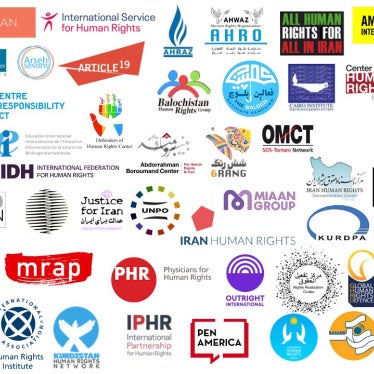President Obama's much-anticipated speech, before 2,500 invited guests at Cairo University, was billed as a candid discussion about the reasons for the estrangement between Muslims and the United States. He addressed some of those concerns, but he did not satisfactorily address the concern in the Muslim world about the financial and political backing by Washington of repressive governments - and in particular the government of Egypt.
Obama's speech essentially failed to address the dismal human rights record of Egypt and its neighbours, beyond generalities. His words, greeted with both rapturous applause and moments of silence, were addressed to the whole Muslim world. But he could and should have alluded in a far more direct way to the repressive practices of Egypt and many of its neighbours. Those troubled by the signs that the Obama administration is downgrading the place of human rights in US foreign policy will have found nothing reassuring in his speech.
For the opposition and human rights community in Egypt, the democracy section of his speech was especially critical. They feared that the government of President Hosni Mubarak would take Obama's choice of Cairo for the speech as a seal of approval for his dismal human rights record. Coming four years after then-Secretary of State Condoleezza Rice's pro-democracy speech in Cairo, which some saw as having helped to widen the space for democratic activism in Egypt, Obama's comments on democracy were eagerly awaited.
In her 2005 Cairo speech, Rice said that in Egypt peaceful supporters of democracy "are not free from violence" and that "the day must come when the rule of law replaces emergency decrees - and when the independent judiciary replaces arbitrary justice." In contrast, Obama spoke in bland terms of how people yearn for the rule of law and administration of justice, avoiding reference to the long-standing states of emergency that undermines the rule of law in Egypt, Algeria, Syria and elsewhere.
He spoke of torture only in the context of post 9/11 practices by the United States. But he could have gone on to say that the torture that is so widely practised by governments in the lands he was addressing needed to be eradicated, while acknowledging US complicity in past renditions of terrorist suspects to face torture in countries that included Egypt.
Obama spoke of the importance of the "ability to speak your mind," but could have more pointedly alluded to the imprisonment of dissidents, journalists and bloggers in Egypt and beyond.
In contrast, when it came to criticizing Israel's settlement policy on the West Bank and the humanitarian crisis in Gaza, Obama was direct, just as he was straightforward in calling for the "upholding of religious diversity" for Copts in Egypt and Maronites in Lebanon.
He should have evoked just as directly the heavy-handed repression of nearly all dissent in so many countries of the region, Egypt included. Intoning that respect for human rights promotes stability, or that democracy involves ruling by consent, will not make the Egyptian government feel particularly uncomfortable.
President Obama will have seen little of the dismal state of human rights in Cairo, although he will have seen the full glory of Egyptian security which cleared the streets of people and cars, told shops and businesses to close down for the day and postponed university exams - in addition to some decoration, such as painting lampposts and landscaping the areas around Cairo University.
Overall, Obama's references to human rights were vague and bland, surely a disappointment to human rights activists in the region. Obama has a lot more to do if he wants to address this cause of Muslim criticism of the US.







